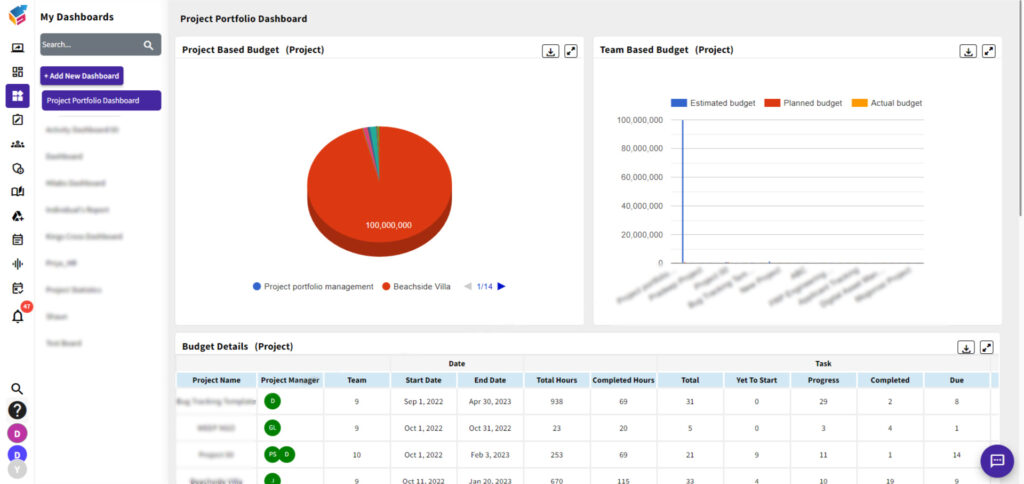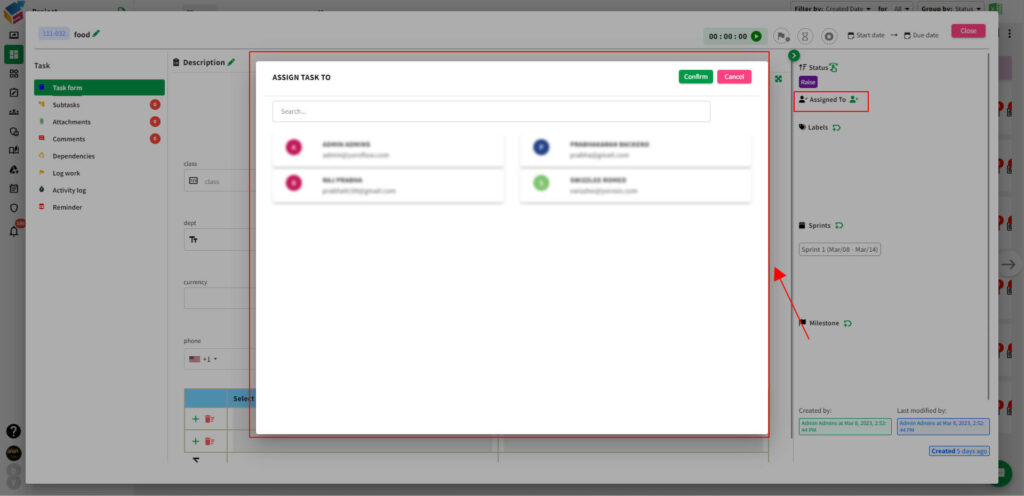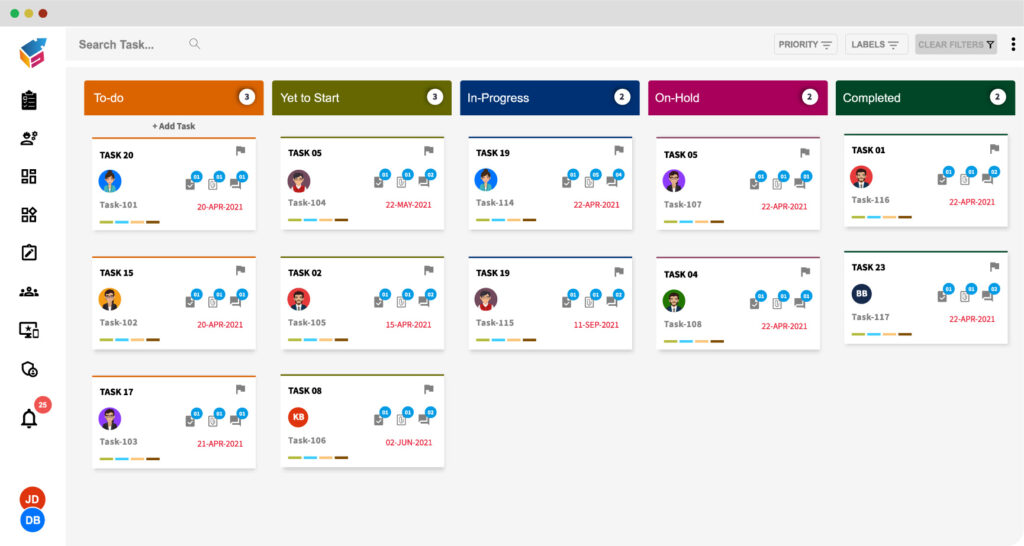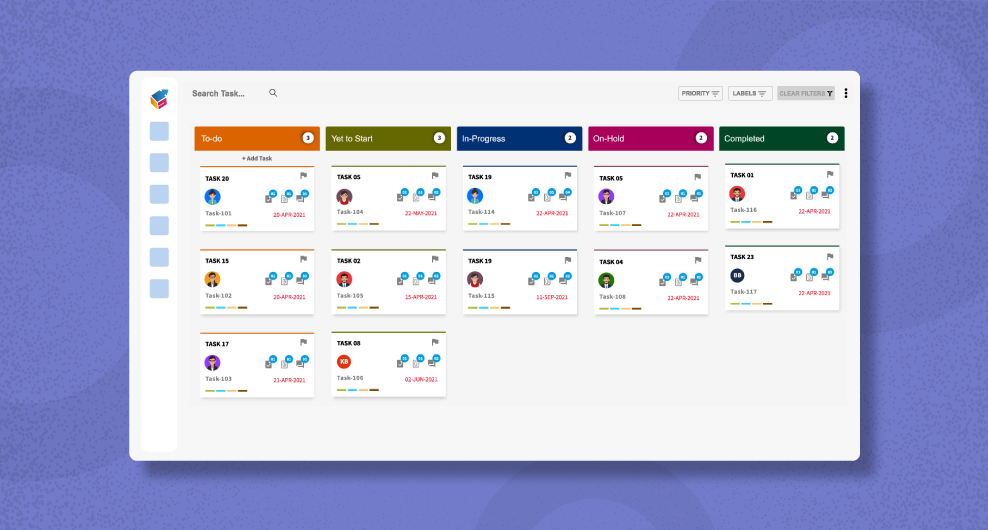Table of Contents
What is marketing project management?
Marketing project management is the process of planning, executing, and controlling the performance of a specific marketing project in order to achieve the project’s objectives and deliver the intended results. This includes defining the project scope and objectives, creating a project plan, assigning roles and responsibilities, tracking progress and making adjustments, communicating with stakeholders, and evaluating the project’s success.
The ultimate goal of marketing project management is to achieve the project’s objectives within the given constraints, such as time, budget, and resources, while also being agile and adapting to changing market trends and customer feedback. It also involves utilizing various marketing channels and tools to reach the target audience effectively.

Objectives of marketing project management
Marketing project management involves the planning, execution, and tracking of a specific short-term project which has a beginning, an end and specified deliverables. The ultimate goal of marketing project management is to achieve the objectives of the project within the given constraints, such as time, budget, and resources.
- Define the project scope and objectives: Clearly define the goals and objectives of the project and what the deliverables will be.
- Create a project plan: Develop a detailed plan that includes the project schedule, budget, resources required, and milestones.
- Assign roles and responsibilities: Identify the team members and assign specific roles and responsibilities.

- Track progress and make adjustments: Use project management software or tools to track progress and make adjustments as needed.
- Communicate with stakeholders: Regularly communicate with stakeholders to ensure that they are aware of the project’s progress and to address any concerns.
- Evaluate the project’s success: Once the project is completed, evaluate its success by comparing the actual results to the planned objectives.
Marketing Project Management also need to be agile and adapt to the changing market trends and customer’s feedback, also need to be aware of the different marketing channels and tools that can be used to reach the target audience.
What exactly does a marketing project manager do?
A marketing project manager is responsible for the planning, execution, and tracking of a specific marketing project. Their main role is to ensure that the project is completed on time, within budget, and to the desired level of quality. To support these responsibilities, marketing project managers often leverage tools such as project tracking software and specialized project management solutions tailored for marketing purposes. These tools assist in organizing tasks, managing timelines, and ensuring efficient collaboration among team members, ultimately contributing to the successful delivery of marketing initiatives.
Some specific responsibilities of a marketing project manager include:
- Defining the project scope and objectives, and creating a detailed project plan
- Identifying the resources (e.g. personnel, materials, budget) needed to complete the project
- Assigning roles and responsibilities to team members
- Tracking progress and making adjustments as needed to stay on schedule and within budget
- Communicating with stakeholders (e.g. clients, team members, upper management) to keep them informed of the project’s progress and address any concerns
- Managing risks and issues that may arise during the project
- Ensuring that the final deliverables meet the project’s objectives and are of high quality
- Evaluating the project’s success and identifying areas for improvement in future projects
Marketing Project Manager also needs to be aware of the different marketing channels and templates that can be used to reach the target audience, also need to be able to understand the market trends and customer’s feedback, and use them to adapt the marketing strategy accordingly.
Benefits of marketing project management
Marketing project management brings several benefits that can help organizations achieve their goals and deliver high-quality results. Some of the main benefits include:
- Improved efficiency: Marketing project management tools provide a clear structure and plan for executing projects, which helps to ensure that tasks are completed on time and within budget.
- Increased accountability: By assigning roles and responsibilities, a marketing project manager can hold team members accountable for their tasks and progress.
- Better communication: Regular communication with stakeholders helps to ensure that everyone is aware of the project’s progress and any issues that may arise.
- Better quality of deliverables: By following a structured process and tracking progress, a marketing project manager can ensure that the final deliverables meet the project’s objectives and are of high quality.
- Increased customer satisfaction: By understanding market trends and customer feedback, a marketing project manager can adapt the marketing strategy and deliver products or services that better meet the needs of the target audience.
- Reduced risk: By identifying and managing potential risks, a marketing project manager can minimize the likelihood of unexpected issues arising during the project.
- Better decision making: By evaluating the project’s success, a marketing project manager can identify areas for improvement and make better decisions for future projects.
- Improved collaboration: Marketing planning software can bring different departments and team members together to work towards a common goal, which can improve collaboration and teamwork within an organization.

Overall, Marketing Project Management helps organizations to achieve their goals and deliver high-quality results by providing a clear structure, better communication and collaboration, increased accountability and reduced risk.
Is marketing project management software worth the punch?
Marketing project management software can be a valuable tool for organizations that need to manage multiple marketing projects and teams. Some of the key benefits of using marketing project management software include:
- Improved collaboration: Many marketing project management software tools include features that allow team members to share files, track progress, and communicate with each other in real-time. This can improve collaboration and teamwork.
- Increased visibility: With marketing software, managers can easily see the progress of multiple projects and identify any issues that may arise. This can help to ensure that projects stay on schedule and within budget.
- Better tracking and reporting: Many marketing management software tools include built-in tracking and reporting features that allow managers to track progress, expenses and generate reports.
- Automation of repetitive tasks: Marketing project management software can automate repetitive tasks like scheduling, time tracking, and invoicing, which can save time and reduce errors.
- Improved communication with clients: Some marketing project management software includes client portals that allow clients to access project information, track progress and provide feedback.
- Increased scalability: As the organization grows, campaign management software can scale up with the organization, allowing more team members and more projects to be managed.
However, it’s important to note that the effectiveness of marketing project management software depends on how well it is implemented and how well it fits the organization’s needs. The software can be expensive and also need some initial setup and training, but if implemented correctly it can save time and money in the long run. It is recommended to do a thorough research and analysis before investing in one.




